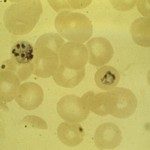Link to Pubmed [PMID] – 38450297
Link to DOI – 10.3389/fped.2024.1373918
Front Pediatr 2024 ; 12(): 1373918
With advances in prenatal imaging, genetic testing, and medical treatment of premature neonates, new bioethical challenges have arisen. Many Muslims turn to their faith and religious leaders to help navigate these novel challenges. This article briefly discusses the factors that are involved in religious leaders issuing a fatwa, or religious opinion. Using clinical scenarios, this article reviews the current discourse amongst Islamic scholars and laws in Muslim-majority countries regarding challenging bioethical topics surrounding preconception counseling, antenatal testing and termination of pregnancy, as well as Islamic scholars’ attempts to determine a minimum gestational age of viability using primary religious texts, the Quran and hadith. Challenges and shortcomings in the Islamic perspective on these issues are also addressed to highlight areas in which further research should be pursued. A deeper understanding of Islamic religious perspectives on these topics can help clinicians in providing care that is informed by patients’ cultural and religious values.

